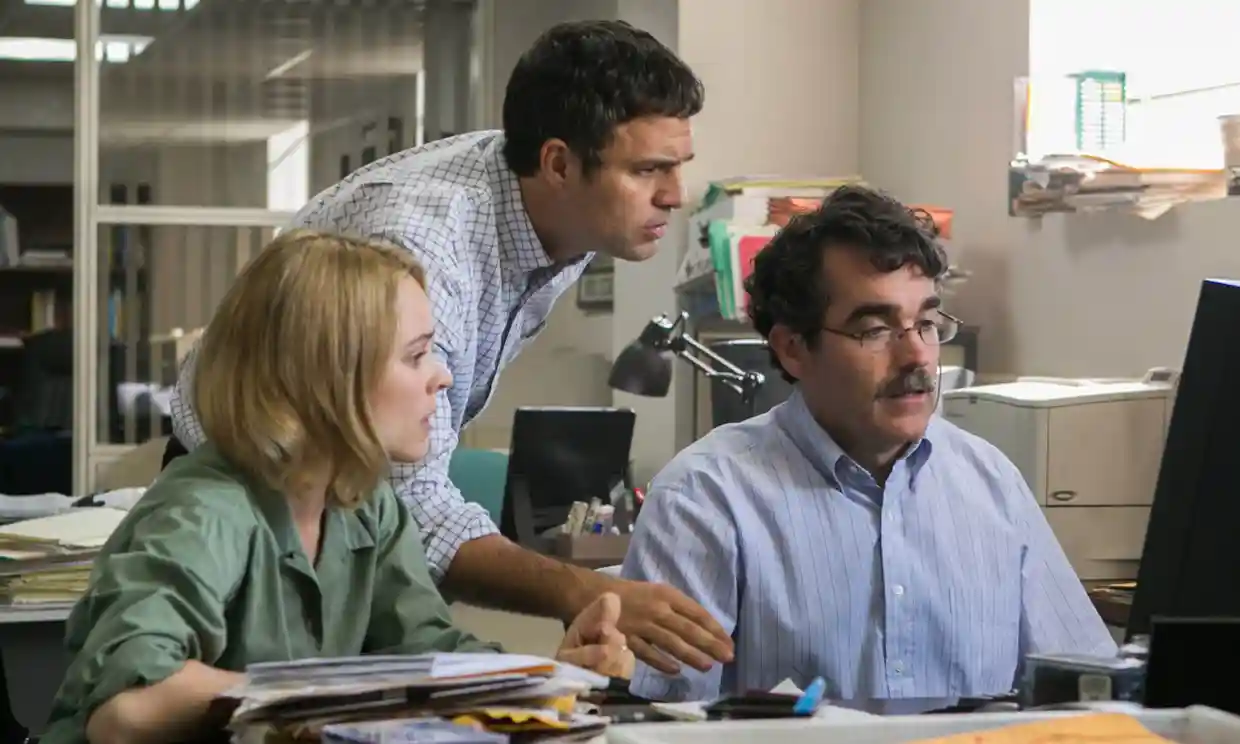‘Spotlight’ confronts the church’s perils
Spotlight, based on a true story, follows the endeavours of a group of journalists seeking to expose a systemic pattern of sexual abuse and concealment perpetrated by the Catholic Church, all the while contending with forces that seek to prevent them from doing so.
Even the journalistic profession’s most mundane details are painstakingly replicated on the big screen. This is obviously redolent of previous newsroom capers such as All The President’s Men. Within the major story there are other stories: a new editor is coming in, the rise of the Internet is hinted at etc. But as is proper, the ‘spotlight’ remains on the key story, with a particular focus on the victims.
The film boasts a high-profile cadre, including Mark Ruffalo, Rachel McAdams, Michael Keaton, John Slattery, and Stanley Tucci. With the large ensemble, Spotlight winks at hidden depths in some of the characters, though never is able to explore them further. But again, that is hardly the point. Ruffalo exudes a wiry intensity, an overgrown adolescent afflicted by a deepening obsession with the story that has already cost him a marriage. Keaton and Slattery are most effective as two grizzled old hands in an industry renowned for chewing up its young, which of course is exactly what they are. The characters serve the story at hand.
Gems range from the biting (‘If it takes a village to raise a child, it takes a village to abuse one.’) to the heartbreakingly quippy (‘These people have a word for everything’ ‘Except rape’).
As a movie, there are flaws. Sometimes, it seems to stubbornly delight in breaking the cardinal rule of cinema: show, don’t tell. Still, this can be largely forgiven due to the general potency of much of the dialogue. Gems range from the biting (‘If it takes a village to raise a child, it takes a village to abuse one.’) to the heartbreakingly quippy (‘These people have a word for everything’ ‘Except rape’).
A church can be the social nucleus of many, particularly elderly people, and a source of profound comfort. But the Church is a mere institution and must be held accountable as any other would be
Watching this movie, a profound realisation dawned upon me – the imperative distinction between a church and the Church. People may need a church, serving as a place of community and belonging. A church can be the social nucleus of many, particularly elderly people, and a source of profound comfort. But the Church is a mere institution and must be held accountable as any other would be. In fact, though it can often seem vested with inordinate sanctity it ought to be held to far stricter standards. Nowhere near enough research is undertaken into the nature of the institution of the Church. The Church is portrayed mostly as a sinister institution that prowls in the shadows, extending its tentacles into every facet of life. Indeed, many of the most jarring statistics and insightful comments are delivered over the phone in a deadpan voice, from an ex-priest who has been studying the abuse epidemic for decades.
In essence, Spotlight is not cinema at its most sweeping, or most immersive or even jaded, but at its most effective — a medium harnessed to disseminate a disturbing and resounding truth about our world. The addition of stars to play such seemingly mundane roles works to draw attention to the wider story and highlight the unsung heroes of the world who really do seek out such depravity in the real world and attempt to expose it, in the hope of instigating change.

Comments